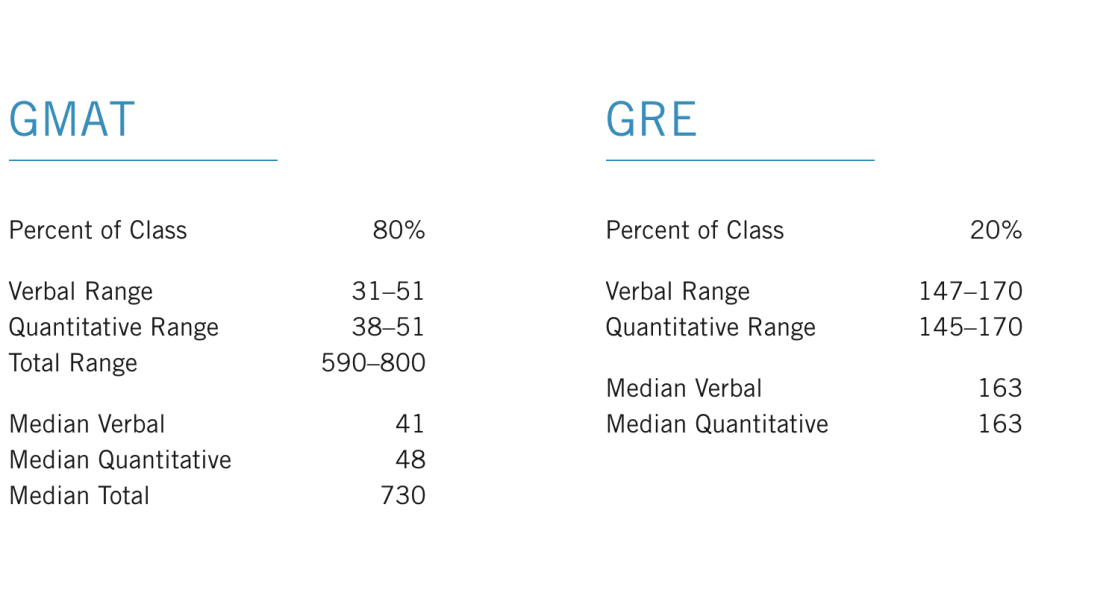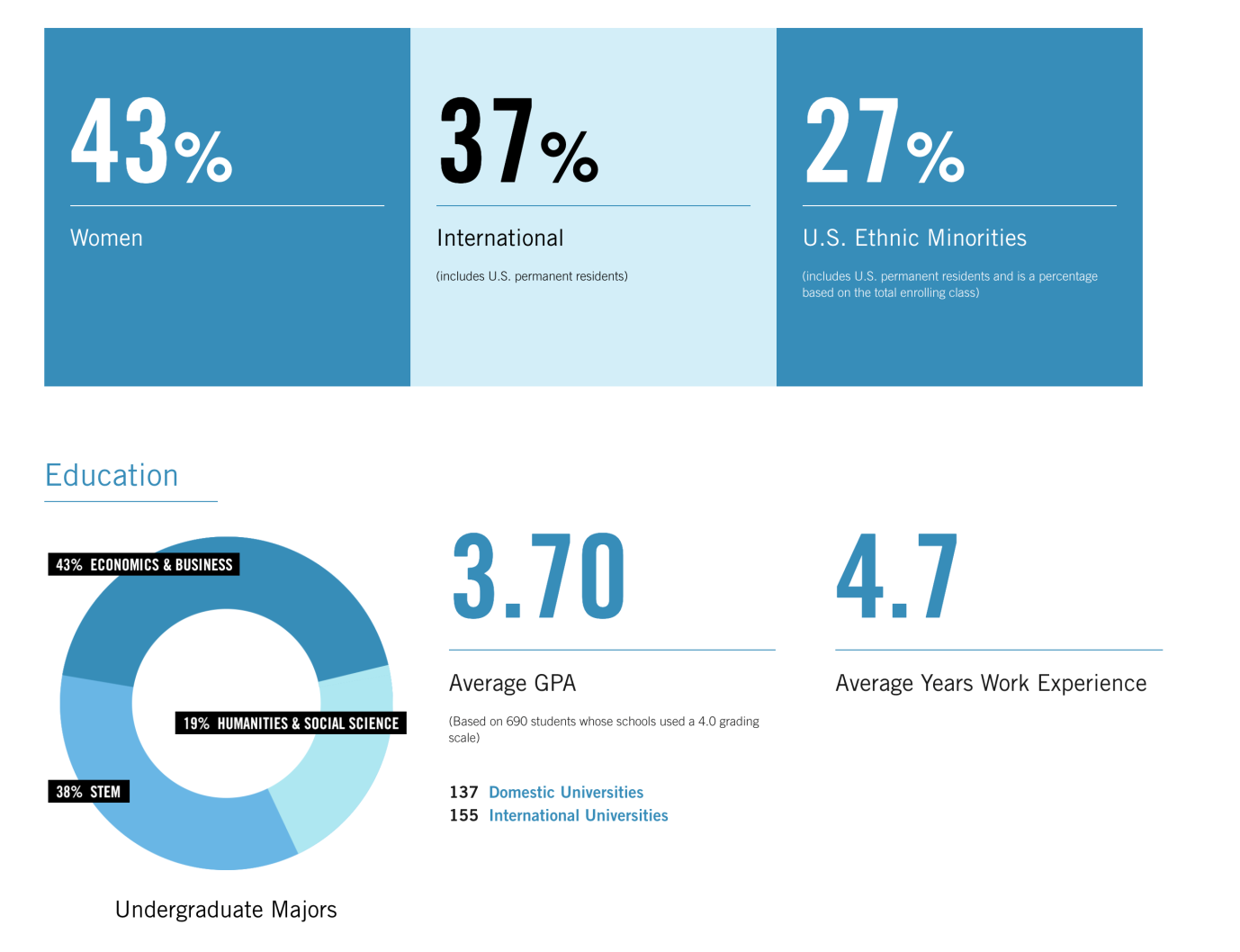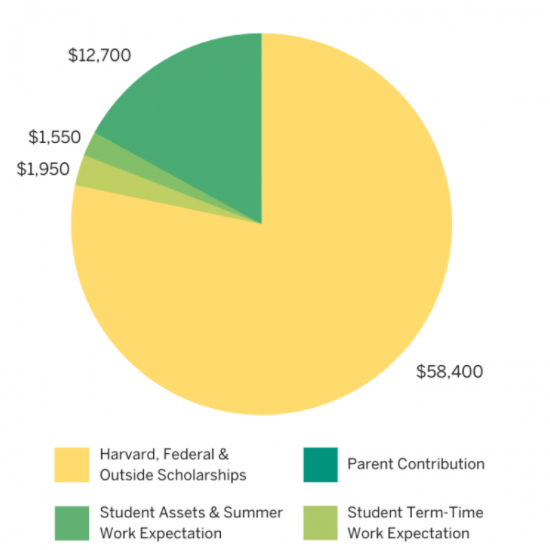Harvard is the dream B-School for MBA applicants across the world! Rightfully so, since it is one of the
best places to study MBA in, and it also offers lots of scholarships!
With the right scores and attitude, you definitely stand a chance to crack one of the most prestigious B-
schools in the world. And once you have done so, you will need to start looking at the scholarships.
This article will be divided into two parts. The first section will help you understand how to crack the
Harvard MBA program, and it will create an understanding of what your application should look like. The
second section will explain the various types of Harvard scholarships available including the non-
university scholarships. And then we will talk about the various ways in which you can acquire these
scholarships.
So, let’s get started!
Part 1: How to Get into Harvard Business School?
There is a very specific set of criteria that decides whether you will be selected or not. But none of these
aspects are rock solid. There have been many cases where an applicant with a high GMAT score was not
selected, whereas someone with a lower score but with key work experience was selected!
“If you indeed want to take up the Harvard challenge with a GMAT score of 710-720, then you need to
have really strong work experience, a great GPA from a top-tier college, and extra-curriculars that set
you apart.”
There are three particular aspects of your application that you should begin with.
A. GMAT and GPA
The ideal GMAT score for a Harvard applicant is 750+. But even if you are lower than that you definitely
stand a chance. So, if you have a score of anywhere between 730-750, coupled with strong work
experience and personality, you will be well suited for the Harvard class.
When it comes to the top-tier MBA schools, there is a shift in the average GMAT score in every class.
Here’s a look at the shift in average GMAT scores between 2017 and 2018 for some of the top B-schools
in the world. This will give you a better perspective at understanding the requirements of a school such
as Harvard.
| B-School | Average GMAT Score 2018 | Average GMAT Score 2017 |
| University of Chicago – Booth School of Business | 730 | 726 |
| Kellogg School of Management | 732 | 728 |
| Harvard Business School | 730 | 729 |
| University of Pennsylvania – Wharton School | 732 | 730 |
| Stanford University – Graduate School of Business | 737 | 737 |
| UCLA – UCLA Anderson School of Management | 715 | 715 |
| University of Virginia – Darden School of Business | 713 | 712 |
| Columbia Business School | 725 | 718 |
So, if your GMAT score is below 730 and you do not have the best work experience to portray, then you
are probably better off taking your GMAT again and increasing your chances. You will be able to increase
your work experience in the meantime as well! But if you indeed want to take up the Harvard challenge
with a GMAT score of 710-720, then you need to have really strong work experience, a great GPA from a
top-tier college, and extra-curriculars that set you apart.
In this video I explain in-depth how to beat Ivy League Schools with a low GMAT score:
What Should You Do After a Low GMAT Score? MBA with 500 GMAT? Jatin Bhandari, Global MBA
Consultant
When it comes to GPA, the best case scenario is 3.7+. However, much like the GMAT score it can be
compensated for with other aspects of your application! The ranking of the institution from where you
completed your undergrads also plays a role. So, a high GPA score from a reputed university can
effectively work as a shield against a low GMAT score.
Keep in mind that that GMAT is something that you can always retake and try to improve your score.
But your GPA will never change! So, place a lot of importance on your GPA if you are still in college, but
if you are already out of college then ensure you put in the best possible efforts for your GMAT!
Here are the average GMAT and GRE scores of the last Harvard MBA batch:

B. Work experience
Your work experience is one of the most important aspects of your application. If you have worked at
one of the Fortune 500 companies then your chances of getting admitted are automatically heightened!
While the average requirement for cracking Harvard is 4+ years of work experience, if you have been
employed at Google or Microsoft for 2.5 – 3 years, with a good GMAT score and GPA, you can definitely
take a shot at applying to Harvard!
If you are employed at a lesser known company your experience still counts. But, you will probably need
to make sure that you have sufficient experience and have also achieved milestones at your workplace.
Working at a smaller organization can often mean handling larger roles, and this can potentially place
you ahead of a candidate who has worked at a larger organization for the same time period and has
similar GMAT and GPA scores.
See this video below for more discussion on the work-experience required to crack Harvard MBA:
How to crack Harvard MBA? Work Experience Required for Harvard Business School? | Jatin Bhandari
C. Extra-curricular activities
Harvard pays a lot of importance to the personality of their students, and this is decided by the extra-
curricular activities. If you are good at team based sports, active in the alumni association, or have
represented your college/city; then you will definitely have a strong application.
Necessarily, the extra-curriculars you mention in your application will set you apart as an applicant. It
will prove your leadership skills, and furthermore it will showcase you as a go-getter!
Keep in mind that every batch of Harvard MBA has a strong international presence. So, as an applicant
from India you definitely have a good chance as long as you build your application right!

So, keeping in mind these particular aspects you will be in one of the tiers while applying to Harvard:
| Tier | GPA | GMAT | Work Exp | Extra Curriculars | Outcome |
| Tier 1 | 3.7+ | 750+ | 3-4 years at a Fortune 500 company | Yes | Admitted |
| Tier 2 | 3-3.7 | 730-750 | 4+ years at a regular company | Yes | Possible |
| Tier 3 | 3-3.7 | 750+ | 2+ years at a regular company | No | Possible but with significant work achievement |
| Tier 4 | 3.7+ | Below 720 | 4+ years at a regular company | No | Advised to increase GMAT score |
| Tier 5 | 3.7+ | Below 720 | 3-4 years at Fortune 500 company | Yes | Possible, but better chances with increased GMAT |
Creating the Harvard Mindset
“At Harvard, they are not looking to simply hire bright students. An Ivy League MBA applicant needs to
know their own future goals in a concrete manner.”
Your GMAT/GRE score, work experience, etc. are not the only things that will ensure your entry into an
Ivy League B-school such as Harvard. When it comes to top-tier MBA programs, a certain mindset needs
to be cultivated.
This mindset includes understanding of the self as well as contextualization of the industry ahead of you.
Understanding Goals
At Harvard, they are not looking to simply hire bright students. An Ivy League MBA applicant needs to
know their own future goals in a concrete manner. Furthermore, they should be able to create a link
between said goals and an MBA program. If you as an applicant know where you want to be and how to
get there, then the applications committee at Harvard is likely to provide you a chance at their program.
Why Harvard This is a common question many top-tier MBA schools will ask their candidates. And they are definitely
not looking for pointers you picked up from the website of the B-school you are applying to! What they
really want to know is which aspects of the Harvard MBA program fuels your professional goals, and
why so.
Class Visit A class visit to Harvard or any Ivy League school you are targeting will provide you with a much better
perspective of the program. You can find schedules for class visit on the Harvard website, and this will
effectively allow you to meet with the admissions committee beforehand. The experiences you gain will
help create a better application.
Part 2: Types of Harvard Scholarships
Need based scholarships
If someone possesses the necessary merit to be a part of the Harvard MBA program but is unable to
afford it, then Harvard will fund their education. More than 50% of students receive some sort of need
based scholarship every year, and one in every 5 students is able to get a complete scholarship! Harvard
does not provide any direct merit-based scholarships.
Harvard’s need based scholarships are also available to international applicants, and the common range
of aid provided is between $30 – $50 thousand per year! If you have been selected for the Harvard MBA
program, you should always try to get some of your tuition fee covered by the need-based scholarships.
Truth be told, most Indian students applying to Harvard for MBA depend on a scholarship to cover at
least a substantial part of their tuition fee. Here is a look at the ideal breakup of how expenses at
Harvard are to be managed:

| Scholarship Name | Scholarship Amount | Purpose |
| Boustany Foundation Scholarship for Harvard MBA | $51,100 annually | Help foreign students with tuition-fee |
| John C. Phelan Forward Scholarship | $15,000 annually | To help students from lower-income backgrounds, specifically those who help their parents or siblings |
| Horace W. Goldsmith Fellowship | $10,000 one time | Help individuals who have served the public sector or NGOs |
| The Robert S. Kaplan Fellowship | $10,000 annually | To help students who possess exceptional intelligence |
What do you need to do in order to get a need-based scholarship?
It’s best to apply for the need-based scholarships as soon as the window is open. Keep in mind that you
can apply for a scholarship only after being admitted to the MBA program at Harvard.
You will be provided with a HBS financial aid application and you also need to fill out the I-20 paperwork
if you are applying from India. You will also be required to provide your income tax information from the
past three years and other asset information as applicable.
Once you have these documents ready you can apply for the scholarship and you will be notified within
a few weeks. It’s important to remember that the need-based scholarship does not get renewed
automatically, and you will be required to apply again the next year.
If you have a good GMAT score (above 740) and fit the criteria for a need-based scholarship, then you
should be able to get at-least a partial amount of your tuition fee covered by the scholarship amount.
Feel free to visit the Harvard website to read more about their scholarships and when you can apply. If
possible, talk to someone who has already received the scholarship or a consultant and you will have a
better sense of how it works and also how it is possible to get a full Harvard scholarship for Indian
applicants.
As for the complementary fellowships, you will have to visit the website of each individual scholarship
provider and read about their application process and criteria.
Do you stand a chance at gaining the Harvard MBA Scholarship?
The answer is yes! If you have been accepted into the MBA program then you should definitely apply for
a scholarship as well.
It’s important to understand that the baseline for getting a Harvard scholarship is annual family income
of $65,000. Beyond this, the more you earn the lesser scholarship aid you get. For a regular Indian
student, this provides a great scenario and raises the chance of getting a Harvard scholarship.
More than half the MBA class each year is awarded some form of grant to cover their tuition fee. So,
choose the right paths, act as early as possible, and you too will be able to earn a prestigious MBA
scholarship at Harvard!
Want more discussion on how to crack the Harvard MBA program and scholarships? Visit our YouTube
page for in-depth information!





